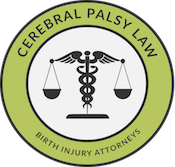Animal Assisted Therapy for Cerebral Palsy (CP)
Bonding with animals is, without dispute, a rehabilitative experience unmatched by another form of therapy for individuals with special needs or disabilities. Research continually indicates that animal assisted therapy and companion pets help special needs individuals reach rehabilitative goals, experience greater well-being, and improve physical, social, cognitive, emotional, and behavioral functioning. Throughout this page, our Michigan cerebral palsy and birth injury lawyers will discuss the benefits and types of animal assisted therapy. If you or a loved one were diagnosed with a permanent birth injury or disability as the result of medical malpractice, we encourage you to reach out for legal help. Our Michigan birth trauma attorneys have helped a number of individuals affected by birth injury secure the funds necessary to afford animal assisted therapy. Don’t hesitate to contact our Michigan cerebral palsy lawyers by calling our office toll-free at (888) 592-1857, filling out this online contact form, or pressing the Live Chat tab to the left. Our Michigan birth trauma team looks forward to speaking with you!
What Is Animal Assisted Therapy?
Animal assisted therapy (AAT) is a form of therapy that aims to improve a patient’s physical, emotional, social, behavioral, and cognitive functioning through the involvement of animals. Dogs, cats, fish, horses, dolphins, and other animals not only serve as unique companions to individuals with disabilities, injuries, or other special needs—therapeutic animals are also often used for the purposes of guiding, utility, assistance, hearing or seeing, therapy, psychological well-being, protection, seizure detection, and more.
Animal Assisted Therapy for Children with Cerebral Palsy or Special Needs
For differently abled and special needs children, interacting with animals can provide countless benefits towards rehabilitation and general well-being. Advocates of animal assisted therapy report that special needs children who bond with an animal develop a sense of responsibility, show motivation to reach rehabilitation goals, and generally express greater happiness and increased functionality. Therapeutic pets, who are trained to perform precise and important tasks, provide special needs children with the opportunity to form unique bonds and adapt to life with their specific differences. In the sections that follow, we’ll discuss a few of the most popular therapeutic pets and explain how they benefit children with cerebral palsy and other special needs.
Horse Assisted Therapy
Equine-Assisted Therapy, Hippotherapy, and Therapeutic Horseback Riding
Equine-assisted therapy (or simply equine therapy) is the all-encompassing term given to any treatment or therapy exercises that incorporate a horse. Horses are used in a variety of physical, occupational, speech-language, complementary and alternative, and recreational therapy programs. Physically, equine therapy works to improve balance, gait, gross motor skills, range-of-motion (ROM), strength, coordination, and muscle tone. Like all other forms of animal assisted therapy and pet therapy, equine therapy has profound cognitive, social, emotional, and behavioral benefits as well. Children with a range of disabilities, injuries, and special needs have benefited from equine-assisted therapy—some of these special needs include ADHD, cerebral palsy (CP), behavioral disorders, traumatic brain injuries, autism, and intellectual and developmental disabilities (I/DD). Children and adults with special needs can benefit from horses as both companions and therapy animals. Below, we’ll discuss two popular subcategories of equine-assisted therapy in more detail.
- Hippotherapy: Hippotherapy is a form of equine therapy that aims to improve a patient’s neurological function, sensory processing, and overall functional ability through the movement of a horse. Children with a range of special needs and disabilities have used hippotherapy for therapeutic purposes. Many of these children have disabilities and neurological disorders including cerebral palsy, autism, behavioral disorders, psychiatric disorders, traumatic brain injuries, spine injuries, and more. During a hippotherapy session, the horse’s gait moves the rider’s pelvis in a way that mimics human walking. The goal of hippotherapy is to help the patient move in response to the horse’s movement, ultimately establishing normal patterns of human walking, improving sensory processing, and cultivating neurological functioning.
- Therapeutic horseback riding: Therapeutic horseback riding differs from hippotherapy in that it teaches specific horseback riding skills—hippotherapy, on the other hand, derives its purpose from the horse’s movement alone. In therapeutic horseback riding sessions, an instructor teaches a special needs student rehabilitative riding techniques and encourages bonding between the student and horse.
Therapy Dogs for Children with Special Needs and Cerebral Palsy (CP)
Therapy dogs that work with disabled or special needs individuals are trained to perform specific duties. To be eligible to serve for therapeutic purposes, therapy dogs are required to learn basic commands, withstand distraction, and learn and adjust to specific behaviors or commands from the owner. While untrained dogs may serve as valuable companions for individuals with special needs, assistance dogs (service dogs) are protected by the Americans with Disabilities Act, require special training, and are permitted to accompany the owner in special places. Dogs can work as guides, service dogs, seeing eye and hearing dogs, skilled companions, psychological support dogs, therapy pets, and more. Therapy dogs help individuals with cerebral palsy or other special needs improve physical, cognitive, emotional, and social function and well-being, and many service dogs help disabled individuals complete tasks they are not able to complete independently. Some of the many ways in which a therapy or service dog can assist a disabled or special needs individual include:
- Helping with the senses—for instance, an individual with impaired vision can use his or her service dog to navigate without the aid of another human.
- Help with mobility—for instance, a service dog whose owner has a wheelchair can assist with tasks such as opening doors.
- Help with therapeutic goals—for instance, children with therapy dogs may be more enthusiastic about completing therapeutic exercises when their pets are involved in exercises.
- Help with social and emotional well-being: Unfortunately, many children with special needs or disabilities experience social isolation or other problems with peers. Therapy and service dogs can serve as both social icebreakers and unique companions to differently abled or special needs children.
Dolphin Assisted Therapy for Individuals with Cerebral Palsy (CP) and Special Needs
Dolphin assisted therapy (DAT) is another popular animal assisted therapy choice for children and adults with cerebral palsy, intellectual and developmental disabilities, and other special needs. While some dispute the effectiveness of dolphin assisted therapy, advocates claim that sessions help special needs individuals improve attention span, speech and language skills, movement, motor control, and behavioral skills. For many, dolphin assisted therapy serves as a recreational, complementary, or alternative form of therapy that increases the patient’s motivation to complete and reach rehabilitation goals. A number of disabled and special needs individuals find dolphin assisted therapy an exciting and effective form of therapy that gives them the unique opportunity to interact with a remarkable marine animal.
Legal Help for Cerebral Palsy, Special Needs and Disabilities in Michigan
Michigan Cerebral Palsy Attorneys Helping Clients Afford Animal Assisted Therapy
At Michigan Cerebral Palsy Attorneys, our birth injury lawyers have helped numerous clients secure the funds necessary to afford animal assisted therapy. If your loved one experienced a birth injury as the result of medical malpractice, we encourage you to reach out for legal help today. As one of the only law firms solely focusing on birth injury in the country, Michigan Cerebral Palsy Attorneys has the experience and specificity necessary to win your case. Our team of Michigan cerebral palsy lawyers will review your case for free, determine the cause of your loved one’s injury, and inform you of your legal options. Contact our Michigan cerebral palsy lawyers 24/7 in any of the following ways:
We handle cases throughout the U.S.
Call our offices toll-free at (888) 592-1857
Press the Live Chat tab to the left
Complete this online contact form
